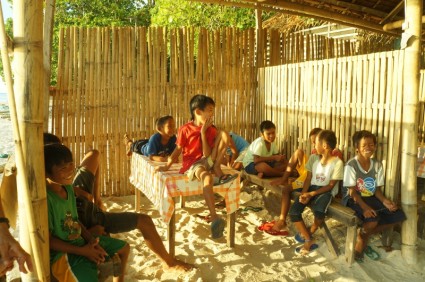 What is Hunger
What is Hunger
Everyone feels hungry on a daily basis. Most people are able to satisfy this craving and need. Even if not immediately, they can count on having a meal or snack within hours. This is not the type of hunger that Bread is concerned with.
People who suffer chronic hunger don’t have the option of eating when they are hungry. They do not get enough calories, essential nutrients, or both. People who are hungry have an ongoing problem with getting food to eat. They have a primary need — how to feed themselves and their children today and tomorrow. They have little energy for anything else.
Access and availability of food
It is commonly known that the cause of hunger in the world is not a shortage of food but rather access to food.
Some people are hungry because food is in short supply in their area and for a specific reason. It may be because they can’t afford to buy enough food. It may be both.
Some countries have a “hunger season” every year. It’s when the previous harvest is gone and the next harvest is not yet ready. It can last as long as three or four months.
The U.S. doesn’t have that kind of a hunger season, but for many families, some weeks are hungrier than others. These usually come toward the end of the month, as families run short of food before they have money to buy more. People can’t simply decide to spend less on rent, but if necessary, they can spend less on food.
For many low-wage workers, retirees, people with disabilities, and their families, even careful planning cannot stretch the grocery budget throughout the month. Less expensive — and less nutritious — filler foods can keep children’s stomachs from growling, but they can’t provide what children need to grow and learn. Adults who are missing meals because they can’t afford to buy food can’t concentrate as well at work.
What is food insecurity?
People in certain conditions, whether they live in the developing world or the United States, are extremely vulnerable to hunger. A month of bad weather for a farmer or an illness for a worker and a loss of income can mean less food and the prospect of hunger.
Food insecurity is the more formal term for this condition. People living with food insecurity lack a stable, reliable means of getting the meals they need.
Bread for the World works toward food security. This means an end not only to chronic hunger and malnutrition, but also to constant worry about where the next meal is coming from.
As the World Food Summit described it, food security is when “all people at all times… have access to sufficient safe and nutritious food… for an active and healthy life.”
Some events, like natural disasters or conflict, are unpreventable and cause hunger. But Bread wants to help end the persistent hunger that exists outside these events.
Source: Text: Bread for the World Image: www.hungerfree.org
 The history of the Olympic movement is rooted in the deep past (776BC). The first (modern) Olympic games were recorded in 1896. At the time they were so important event that warring States ceased their conflicts in order to commemorate this event.
The history of the Olympic movement is rooted in the deep past (776BC). The first (modern) Olympic games were recorded in 1896. At the time they were so important event that warring States ceased their conflicts in order to commemorate this event. What is Hunger
What is Hunger  The first World Television Forum was staged by the United Nations in the mid ’90s, and it was out of this event that World Television Day was born. The forum brought together leading figures from the media industry to analyze the growing impact that TV had on decision-making and public opinion when it comes to issues of peace and security around the planet.
The first World Television Forum was staged by the United Nations in the mid ’90s, and it was out of this event that World Television Day was born. The forum brought together leading figures from the media industry to analyze the growing impact that TV had on decision-making and public opinion when it comes to issues of peace and security around the planet.